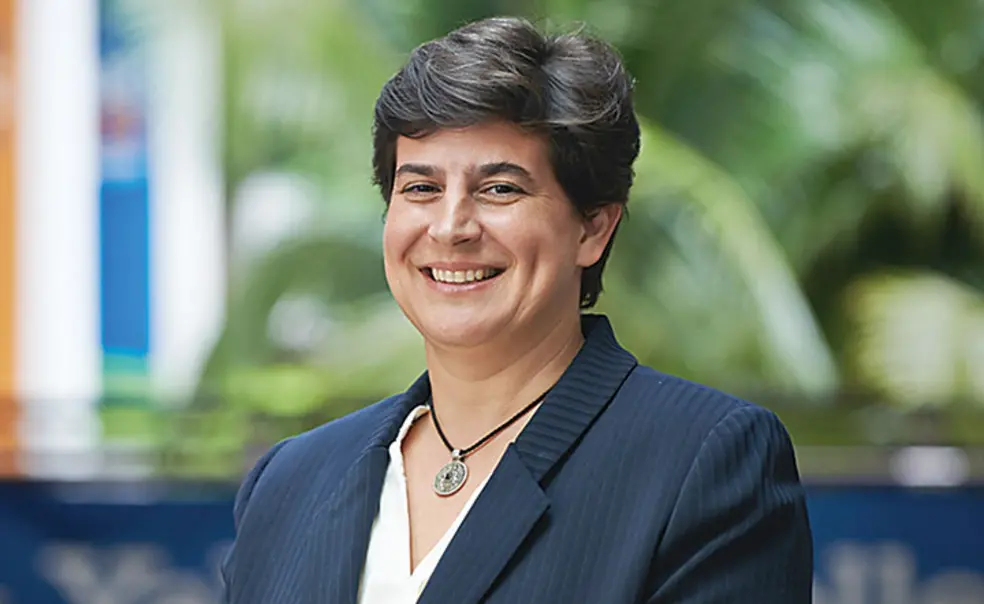Q&A: Anastasia Vrachnos ’91: Thinking Globally
Princeton steps up international efforts, plans to look at impact on students
As vice provost for international affairs and operations, Anastasia Vrachnos ’91 develops Princeton’s initiatives abroad while supervising the Davis International Center and working with other globally oriented campus organizations. She talked with PAW in October about the future of Princeton’s international programs.
Why is globalization important to the University?
Internationalization is absolutely critical to delivering scholarship and teaching of unsurpassed quality. Bringing together scholars and students with different perspectives who challenge each other’s base assumptions is essential to inquiry and discovery. We are also graduating students who will go into a globalized world. They’ll have to solve problems that are complex, to synthesize diverse perspectives, and to work in cross-cultural teams.
What initiatives are in the works?
Internationalizing “the Princeton way” means supporting initiatives that build on the research interests of our faculty and enhance our teaching mission. This means continued commitment to our strategic partnerships in Tokyo, São Paulo, and Berlin and growing our semester study abroad, faculty-led trips, and international internships. One exciting new initiative is the Princeton University Athens Center, which is Princeton’s first center for scholarship and curricular programming abroad. The University also recently stepped up its involvement at the Mpala Research Centre, a multidisciplinary field-research station in Kenya, to better support the work of our scholars, researchers, and students there.
One of the most anticipated moments is the opening of the Louis A. Simpson International Building in December, which will house all the international programs as well as the Princeton Institute for International and Regional Studies. Looking ahead, the University’s strategic planning has identified areas in which we want to build our scholarship and curriculum, particularly China and India.
About 56 percent of students report having an international experience before graduating. What’s the goal in coming years?
The most important thing is that international experience is becoming a seminal part of the Princeton education. We aim to continue to increase that number, but just as important is thinking more pedagogically about outcomes. ... A good target is to better understand what qualities and perspectives students glean from these experiences, whether it’s increased resilience, agility of mind, adaptability, ability to appreciate differences, or tolerance for ambiguity.
Are there efforts to help some student populations, such as engineers and athletes, to better access international opportunities?
You’d be surprised how many engineers and athletes are starting to have international experiences — if not in the traditional sense of study abroad, then in faculty-led trips and internships. Because of the range of things that Princeton offers now, it really gives different groups access to international experiences, but we still have work to do.
How have terror attacks and threats to safety affected plans?
The health and safety of students is the No. 1 priority. Unfortunately, the safety challenges are not just international; they are also domestic. This means making sure we have very rigorous processes of assessment, working closely with faculty, having third-party security consultants, providing training and orientation, and putting in systems that help us track our people and provide information to them. We constantly monitor places in the world where we send students.
Interview conducted and condensed by Ellis Liang ’15












No responses yet